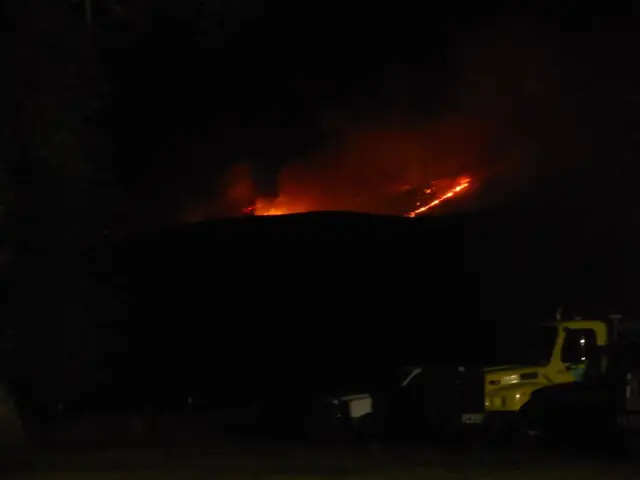Air Strike Causes Chaos at Israel's Ben Gurion International Airport, Missile Impact Recorded
Yemeni Houthi Missile Strike on Ben Gurion Airport Causes Disruption and Injuries
published May 25th, 2025 - 04:49 GMT
A ballistic missile launched by Yemen's Houthi rebels struck near Israel's main international airport, Ben Gurion Airport, on May 4, 2025. The attack caused temporary disruption to aviation activity and injuries to eight individuals. The missile, reportedly a hypersonic weapon, was not intercepted by Israeli and U.S. air defense systems such as Arrow and THAAD.
Following the attack on the airport close to Tel Aviv, the Houthi movement claimed that the strike was a part of their strategic military operation in response to the conflict in Gaza. The group's military spokesperson stated that the missile resulted in the mass shelter rush of "millions of Israelis."
According to the Houthi declaration, several international airlines had already started halting flights to and from the airport due to earlier warnings. It also emphasized that as long as Israeli strikes on Gaza persist and the embargo is active, they will maintain a no-fly zone surrounding Ben Gurion Airport.
The incident took place amid rising regional tensions and the intensifying involvement of Houthi troops in anti-Israeli and pro-Palestinian operations in Gaza. This assertion underscores the expanding scope of the Houthis' regional activities, although Israeli officials have yet to confirm the event officially.
Retaliation from Israel followed the Houthi attack, with Israeli forces launching airstrikes targeting Houthi positions in Yemen on May 5. Israeli officials have issued stern warnings to the Houthis, including a strong statement by the Israeli ambassador to the United Nations, who delivered a "final warning" to halt missile attacks, threatening that the Houthis may suffer the same fate as other Palestinian militant groups and Syria’s Bashar al-Assad.
Israel has since been mobilizing its air defense systems to tackle future missile threats, with their advanced Arrow 3 missile defense system and Iron Dome successfully intercepting other missile assaults from Yemen [2]. Despite this, the Houthi attack highlighted potential vulnerabilities in Israel's air defense architecture against hypersonic missiles, indicating evolving threats from non-state actors such as the Iran-backed Houthis now equipped with long-range missile capabilities reinforced by advanced technological support [2].
In summary, the missile strike had a disruptive impact, leading to injuries and temporarily causing chaos at Ben Gurion Airport. Israel's response included immediate military retaliation and firm diplomatic warnings. The event signaled a significant escalation in the conflict and highlighted new challenges for Israel’s air defense systems and international civil aviation safety [2][1][3].
[1] https://www.reuters.com/world/middle-east/israel-warns-houthis-after-yemen-missile-strikes-israeli-airport-2025-05-05/[2] https://www.jpost.com/israel-news/article-721832[3] https://www.army-technology.com/news/updated-israel-houthi-conflict-2025.htm
- The Yemeni Houthi missile strike on Ben Gurion Airport in May 2025 was a part of the strategic military operation claimed by the Houthi movement, as a response to the conflict in Gaza.
- The incident led to temporary disruption of aviation activity, injuries to eight individuals, and raised concerns about the potential vulnerabilities in Israel's air defense architecture against hypersonic missiles.
- Israeli officials, responding to the attack, have launched airstrikes targeting Houthi positions in Yemen, and issued stern warnings, including a "final warning" to halt missile attacks, alluding to possible repercussions akin to those suffered by other Palestinian militant groups and Syria’s Bashar al-Assad.
- The event underscores an expanding scope of the Houthis’ regional activities, as well as new challenges for Israel’s air defense systems and international civil aviation safety.






